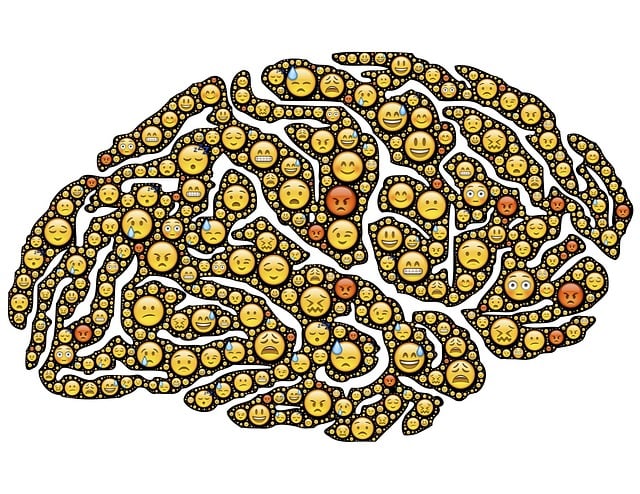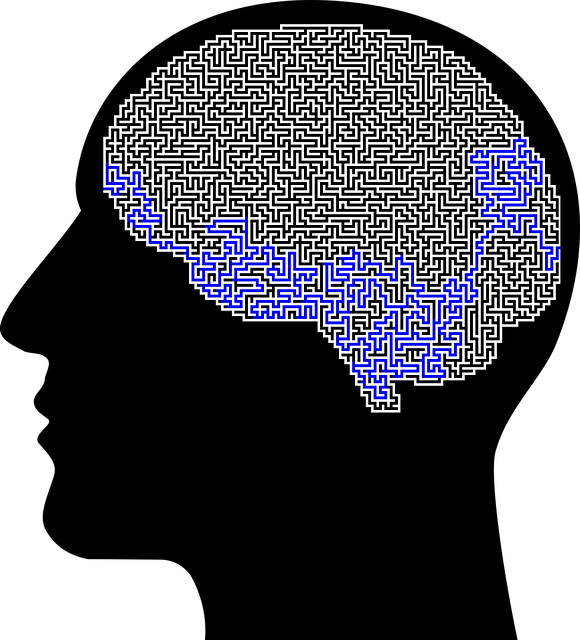Emotional intelligence (EI) is a crucial aspect of managing chronic pain in Longmont, as it enables individuals to recognize and manage their emotions, leading to better coping strategies. Healthcare providers can enhance patient interactions through EI, offering tailored support and compassion, which benefits patients and reduces provider burnout. Developing inner strength and addressing mental illness stigma creates a nurturing environment for building resilience and effectively managing conditions. Key steps include identifying emotional triggers through journaling, practicing mindfulness, and integrating empathy into therapy sessions. These strategies, coupled with risk management planning, enhance emotional agility, improve mental wellness, and support positive policy changes in Longmont Chronic Pain Therapy.
Emotional intelligence (EI) is a powerful tool in managing and overcoming long-term chronic pain. This article explores the multifaceted impact of EI on individuals dealing with Longmont chronic pain therapy, offering insights that can transform their lives. We delve into understanding EI, its effects on pain management, and practical strategies like identifying emotional triggers, enhancing self-awareness, cultivating empathy, and developing emotional agility to navigate daily challenges.
- Understanding Emotional Intelligence and its Impact on Chronic Pain
- Identifying Emotional Triggers: A Key Step in Building Resilience
- The Role of Self-Awareness in Managing Longmont Chronic Pain
- Enhancing Empathy: Connecting with Others Through Emotional Intelligence
- Strategies for Cultivating Emotional Agility in Daily Life
Understanding Emotional Intelligence and its Impact on Chronic Pain

Emotional intelligence (EI) refers to an individual’s ability to recognize, understand, and manage their own emotions, as well as empathize with others’ feelings. It plays a significant role in how we cope with challenges, including chronic pain conditions like those often seen in Longmont Chronic Pain Therapy settings. Research suggests that individuals with higher EI tend to experience better overall well-being and more effective coping mechanisms, which can be especially beneficial for managing the emotional burden associated with chronic pain.
By enhancing EI, healthcare providers can improve their interactions with patients dealing with pain, offering more tailored support and compassion. This is particularly relevant in addressing burnout prevention strategies for healthcare providers, as it promotes a more holistic approach to patient care. Moreover, fostering inner strength development and mental illness stigma reduction efforts within the context of chronic pain therapy can create a nurturing environment, enabling individuals to build resilience and cope effectively with their conditions.
Identifying Emotional Triggers: A Key Step in Building Resilience

Identifying emotional triggers is a crucial step on the path to building resilience, especially for those navigating long-term conditions like chronic pain in Longmont. By recognizing what sets off their emotions, individuals can begin to understand their unique responses and develop effective coping mechanisms. This process involves introspection and self-awareness—taking time to reflect on one’s feelings and the situations or thoughts that elicit them. It might include keeping a journal to track triggers, which can help uncover patterns and provide valuable insights into personal emotional landscapes.
This awareness is a foundation for fostering mental wellness through various initiatives like community outreach programs implementation and mental wellness coaching programs development. By understanding their triggers, individuals can proactively manage their emotional well-being, enhancing their ability to cope with challenging situations. Moreover, risk assessment for mental health professionals plays a vital role in ensuring these processes are carried out safely and effectively.
The Role of Self-Awareness in Managing Longmont Chronic Pain

Managing Longmont chronic pain requires a multifaceted approach, and self-awareness plays a pivotal role in this process. Individuals with heightened self-awareness are better equipped to recognize the physical and emotional cues associated with their pain, enabling them to make informed decisions about their treatment. Through practices like mindfulness meditation and self-awareness exercises, individuals can gain valuable insights into their pain patterns, triggers, and coping mechanisms. This knowledge empowers them to actively participate in their Longmont chronic pain therapy, fostering a collaborative relationship with healthcare providers and leading to more effective management strategies.
Furthermore, integrating self-awareness exercises into daily routines supports the development of emotional resilience, crucial for navigating the challenges inherent in living with chronic pain. By cultivating mindfulness, individuals can learn to observe their thoughts and emotions without judgment, reducing the impact of negative thought patterns often associated with pain. This shift in perspective, coupled with enhanced self-understanding, promotes a more positive engagement with mental health policy analysis and advocacy, ultimately contributing to improved quality of life for those navigating Longmont chronic pain.
Enhancing Empathy: Connecting with Others Through Emotional Intelligence

Empathy is a cornerstone of emotional intelligence, enabling individuals to understand and share the feelings of others. This skill is crucial in fostering meaningful connections and building strong relationships, which can significantly impact mental wellness. In the context of Longmont Chronic Pain Therapy, enhancing empathy becomes even more vital as patients often struggle with complex emotions related to their persistent pain. Mental health professionals equipped with high emotional intelligence can offer supportive environments, allowing patients to express their feelings freely.
Through active listening and sincere interest, therapists can help individuals recognize and validate their emotions, thereby improving emotional regulation. This process is essential in risk management planning for mental health professionals as it enables them to provide personalized care tailored to each patient’s unique emotional landscape. Moreover, integrating empathy into therapy sessions can make the therapeutic journey more engaging, especially when coupled with creative approaches like Mental Wellness Podcast Series Production, offering diverse platforms for sharing experiences and strategies that promote emotional intelligence.
Strategies for Cultivating Emotional Agility in Daily Life

Cultivating emotional agility is a crucial aspect of maintaining mental wellness, especially for those managing chronic pain in Longmont. It involves recognizing and effectively managing one’s emotions to navigate life’s challenges. A powerful strategy is mental wellness journaling, where individuals can express their feelings, track patterns, and gain insights into their emotional responses. This exercise provides guidance on identifying triggers, understanding the intensity of emotions, and developing healthy coping mechanisms.
Additionally, incorporating emotional regulation techniques such as mindfulness meditation or deep breathing exercises during moments of heightened emotion can help individuals gain a sense of control. For those in the field of mental health, risk management planning is essential to prevent burnout and maintain resilience. This involves setting boundaries, prioritizing self-care, and seeking support from colleagues or supervisors when needed. By integrating these strategies into daily routines, individuals can enhance their emotional agility, improve overall mental wellness, and more effectively manage chronic pain conditions like those often seen in Longmont Chronic Pain Therapy settings.
Emotional intelligence (EQ) plays a pivotal role in managing and overcoming long-term chronic pain. By understanding and regulating emotions, individuals can significantly improve their quality of life. The strategies outlined in this article, such as identifying emotional triggers, enhancing self-awareness, cultivating empathy, and developing emotional agility, offer practical tools for navigating the challenges of Longmont chronic pain therapy. Incorporating these techniques into daily routines can foster resilience, promote healing, and enrich overall well-being.














